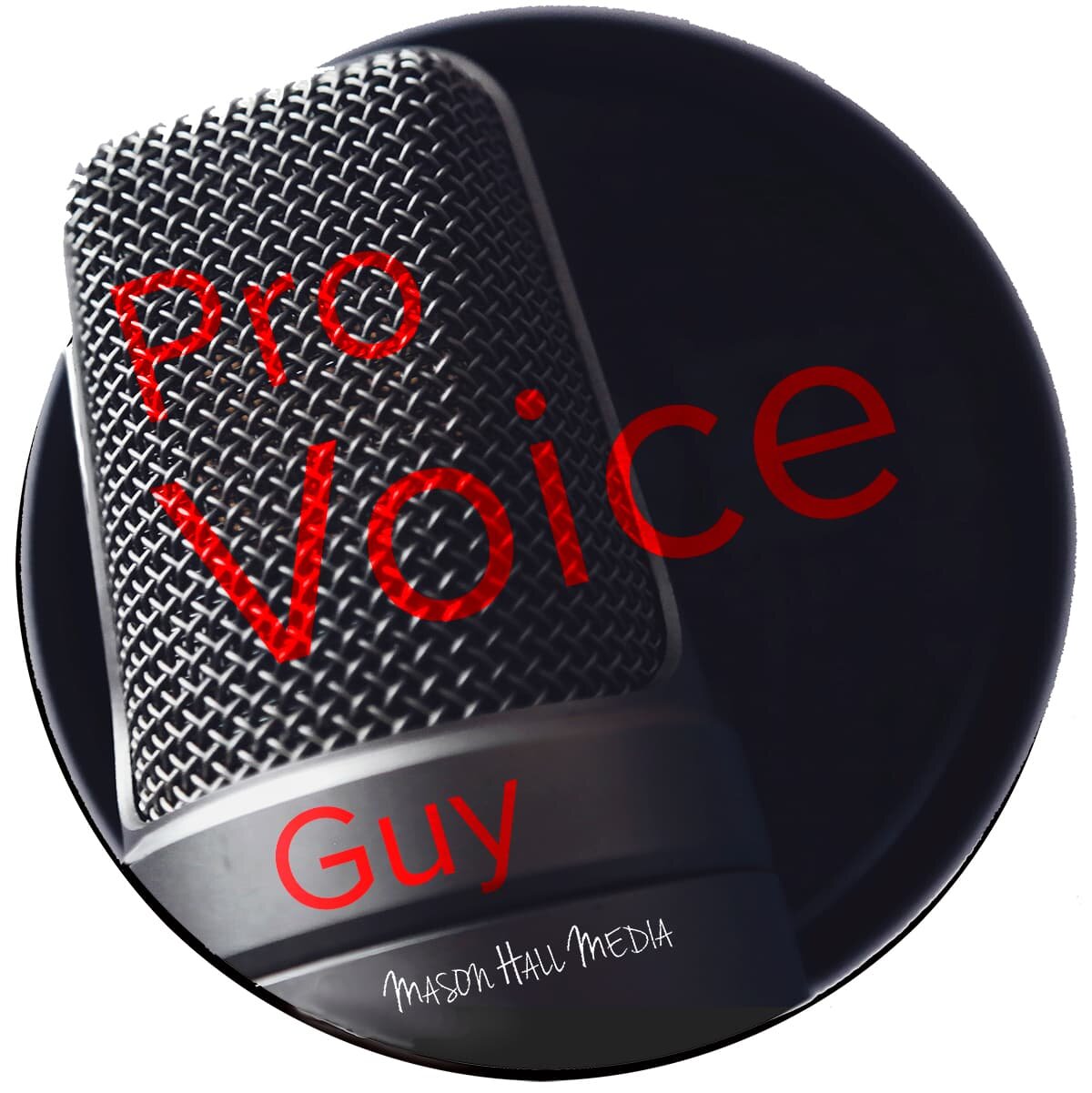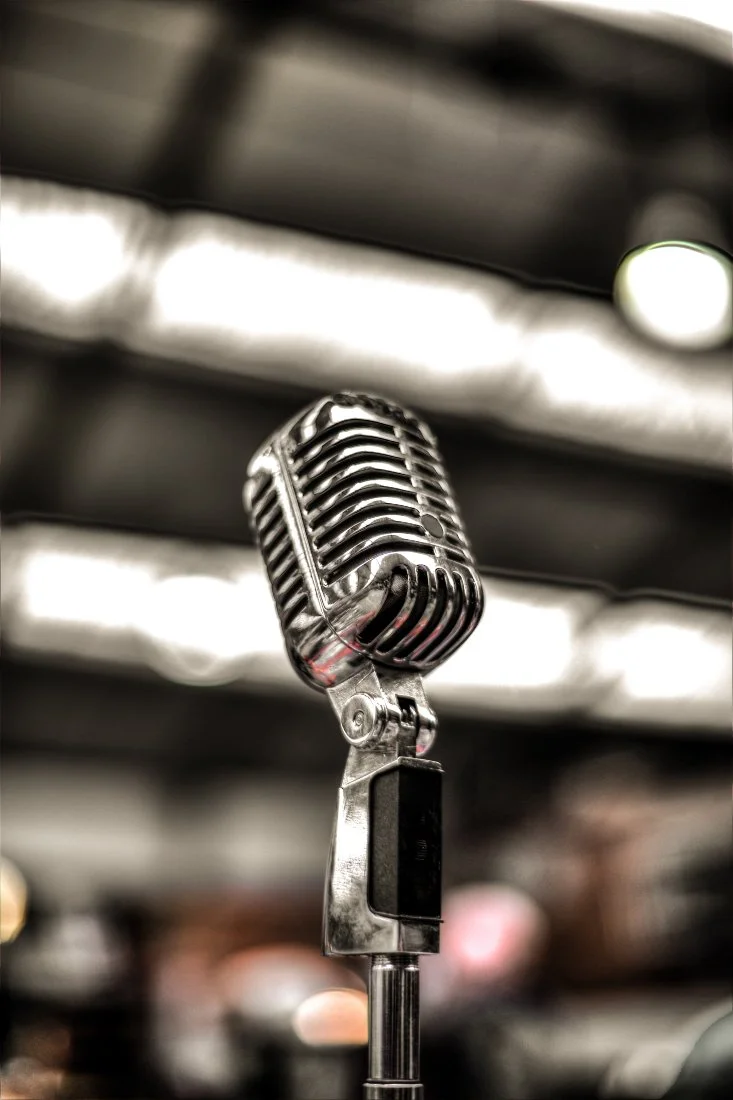How YOU Can Sound Great on Your Podcast (5 Voice Tips)
How can you sound great on your podcast? Practice!
Like it or not, if you are the host of your podcast, you are the "voice talent." I have written before that you don't have to have a "great voice" to have a great podcast. Podcasting is a great chance to share YOUR voice. Your voice works perfectly for your content. So, forget what people sound like when they are selling cars or telling you about new movies. Just be you.
What I want to do is help you be the best you possible. I have picked up some tips through the years using my voice professionally that can help you sound even better on your podcast. The nice thing is, none of these is extraordinarily difficult, and they don't require years of training.
Sound Better on Your Podcast Tip 1 - Stay Hydrated
The first tip is something your doctor will tell you to do anyway. So, even if you throw in the towel on podcasting, you should keep doing this. But here is why it is essential for you as a podcast host: It will make you sound better.
First of all, if you are dehydrated, it is going to make it tough to talk for very long. Even if your podcast is only five minutes long, that is a long time to speak without interruption. That is especially true if you are a little nervous, which many people are sitting in front of a mic the first few hundred times.
Second is a term that may be new to you: mouth clicks. You might not know until you sit in front of a decent microphone, but our mouths make a lot of noise other than the words that come out. We make pops, whistles, and most annoyingly, clicks. You might not even know what they are when you hear them. The sound like small clicks or pops on your recording. An occasional mouth click can sometimes be edited out with your audio software. But, if they are happening all the time, it can make your podcast hard to listen to.
The best way to avoid mouth clicks is to stay hydrated. They tend to happen when our mouth is dry, which is often a sign of dehydration. Drinking a glass of water just before you begin won't cut it. You need to get that water into your body early enough for your whole body to become hydrated. So, the best bet is to make sure you are drinking plenty of water. In a pinch, when you find yourself dehydrated and "clicky" but need to record, eating a green apple will often help. The acid in the apple can break up the effects of your dry mouth and keep you sounding clear, at least for a little while.
Sound Better on Your Podcast Tip 2 - Breath
I hope you are already breathing regularly! But, most people don't think of the impact breathing has on sound. If you are recording something longer than a few seconds in length, you are going to need to inhale, and that is perfectly okay. But, you don't want that inhale to be so pronounced that it is distracting. Breath control is a skill voice artists need to master. Getting better at it can make podcasters sound better and more professional.
For the most part, for podcasters, this is just about getting more control of your breathing. If, when listening back to your show, you hear a lot of big inhales, you may need to practice a bit.
Practice taking more air into your lungs – This will help you go longer without taking a breath.
Master the short inhale – Sometimes, when you are speaking a long phrase, you can't make it all the way through without taking a breath. Instead of stopping for a big inhale, you may find that you can take a quick, short breath to carry yourself to a natural pause.
Have a clear path for your air – Check your posture, especially your neck position. You may find that you are unknowingly constricting your airway, limiting the air that is going out and coming in and creating more noise than necessary.
Inhale with less sound – By doing all of these things, you should find that you won't be quite so desperate to take a breath. This will allow you to focus on making your inhale a little quieter. You can also improve this with practice. Some of the next tips will help you cut down the sound even more.
Sound Better on Your Podcast Tip 3 - Watch Your Mic Position
The short answer to the question, "Where should my mic be?" is, "In front of your mouth." Of course, it is more nuanced than that. In general, hold your hand out in front of you, spread your fingers wide, then, turn your hand so your thumb is right in front of your mouth and your pinkie finger is nearly touching the mic. That should be just about right. Too close and the mic will likely pick up more mouth sounds than necessary. Too far and you will pick more room noise than necessary. That is especially problematic if your recording space is less than desirable.
Distance isn't the only factor. Especially if you are using a condenser microphone, your precise position in relation to the microphone can change the sound it reproduces. With my Sennheiser MK4, most of the time, I try to speak about a hand's distance away and just over the top of the mic. This captures the resonance of my voice while missing some of the mouth sounds I don't like. Sometimes, if I don't like the sound, I will back off a little bit. Other times, if I want a more intimate sound, I will cut the distance in half and get right up on the mic.
Once you get comfortable with your mic, it is okay to move a little bit. If I need to take a big breath, I pull back a little bit from the microphone. If I need to emphasize a word with a P at the beginning, I turn my head just a bit to it doesn’t pop on the mic.
Sound Better on Your Podcast Tip 4 - Tongue Twisters!
Yes! Tongue twisters! These are still one of the best ways to warm up before recording as they stretch out all the muscles you need to speak clearly. Getting adequately warmed up will keep you from tripping over your words. This can also help you with reducing some mouth noises, especially pops and sibilance. Try reading the one about Peter Piper and his peppers right in front of your mic. Then practice and experiment with mic positioning until you don’t hear any pops.
Practicing with tongue twisters will also improve your diction and make you more comfortable behind the microphone.
Sound Better on Your Podcast Tip 5 - Listen
One of the best ways to improve your vocal quality is to listen back to your work. Many new podcasters hate this part. You are not alone if you don't like the sound of your voice when playing back a recording. It has something to do with the fact when we are talking normally, we hear our voices both the usual way, through sound waves in the air, and also through vibrations in our head. So, we sound different when we aren't talking. There is also a psychological factor. We don't listen all that carefully to our voice when we are talking and hearing it disembodied on a recording can feel weird.
If we want to present the best version of our voice, we need to put that aside. We need to find a way to listen critically, but not in a way that makes us want to give up podcasting. For what we are talking about today, we want to listen to anything that distracts from the content. Some of the things to listen for (some of which I mentioned earlier) are pops, clicks, whistles, smacks, big breaths, rustling paper, room noise, buzzes, microphone adjustment noises, jangling jewelry, and even noisy clothing.
Of course, you may be able to use your software to get rid of some of these, but the best plan is to eliminate them in the first place. Listen to your audio with a critical ear, listen for trouble, and then go back over the tips to see if you can get rid of some of the extra sound. Your podcast will sound even better in no time. Don't forget to keep listening. You never know when some new noise will creep in!




